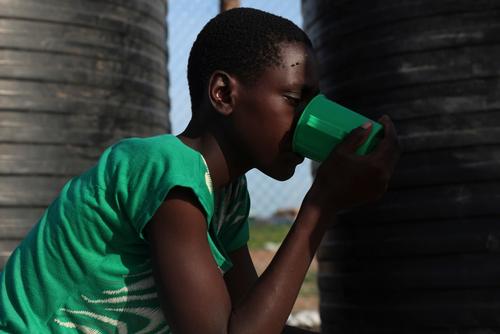Cholera admissions are falling in the Torit region of Eastern Equatoria State in the south of South Sudan, where MSF rapidly set up a cholera project at the end of June. That project alone has treated almost 1400 people, and since April this year MSF has overall treated almost half of the 5,561 cases of cholera reported countrywide.
Cholera not unusual
Cholera is not unusual in South Sudan, but this outbreak comes amidst an ongoing conflict that has regularly targeted aid workers and healthcare structures, and a worrying spike in malnutrition cases in some, but not all, MSF projects.
'Falling numbers of cholera admissions'
“This intervention in the Torit region is now thankfully seeing falling numbers of cholera admissions, meaning we can redeploy staff to meet other urgent needs in the country,” said MSF Head of Mission Brian Moller. “But South Sudan is an already vulnerable population made more vulnerable by the direct and indirect effects of conflict. MSF continues to work where outbreaks have been confirmed, and remains vigilant for further outbreaks elsewhere in the country too.”
Oral cholera vaccination
MSF, together with the South Sudanese Ministry of Health, has also conducted oral cholera vaccination campaigns in displacement camps in towns of Minkaman, Malakal, Bor and Bentiu. The international medical humanitarian organisation has conducted a further oral cholera vaccination with the Ethiopian Ministry of Health in a refugee camp receiving hundreds of South Sudanese refugees daily in the Gambella region of neighbouring Ethiopia.
MSF in South Sudan: MSF has been providing medical humanitarian assistance in what is now South Sudan for over 30 years. After fighting broke out in Juba last December and then spread to several other states, MSF increased its capacity to rapidly respond to emergency medical needs in the country.
MSF medical teams now work in 22 projects in 9 of the 10 states in South Sudan, providing a range of services including primary and secondary healthcare, nutritional support, surgery, vaccinations, and water and sanitation support.




